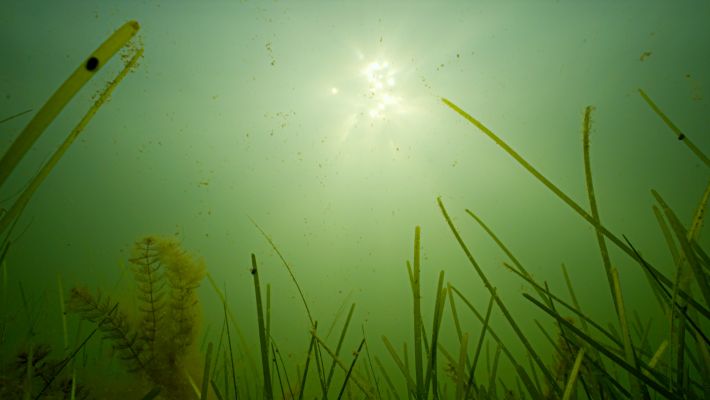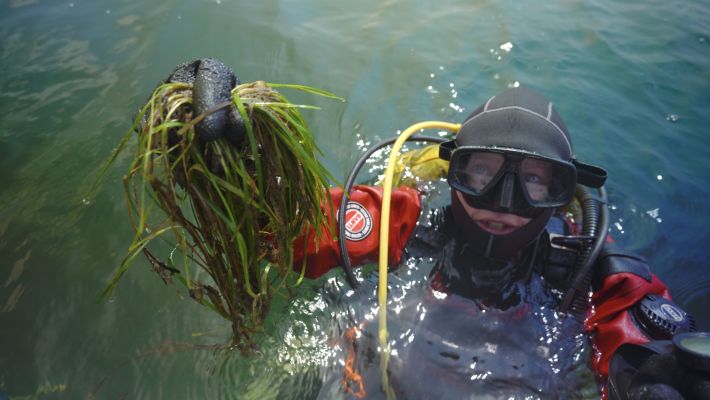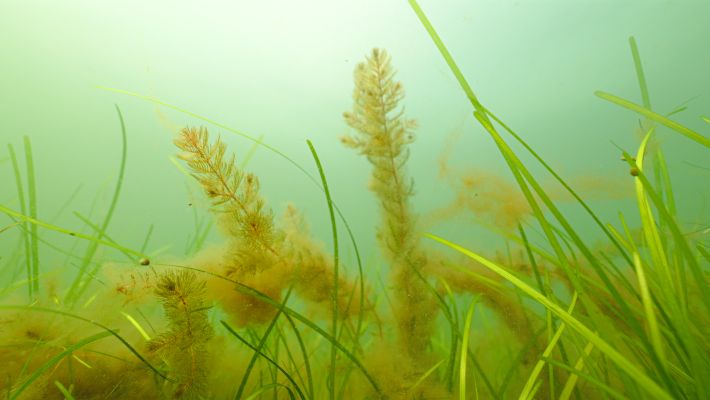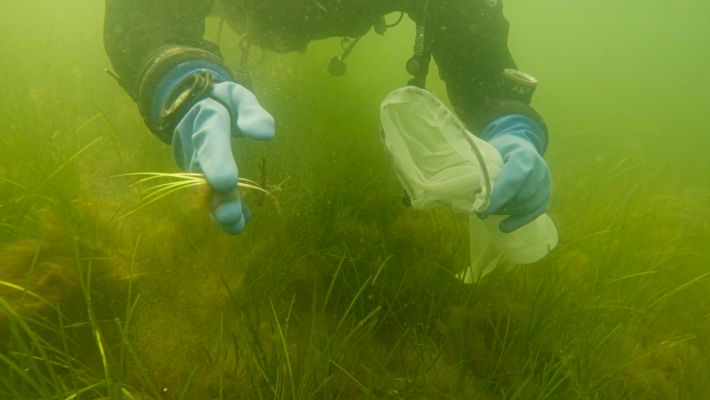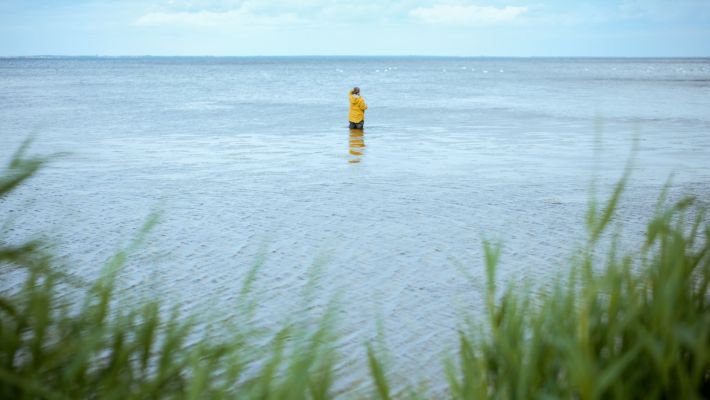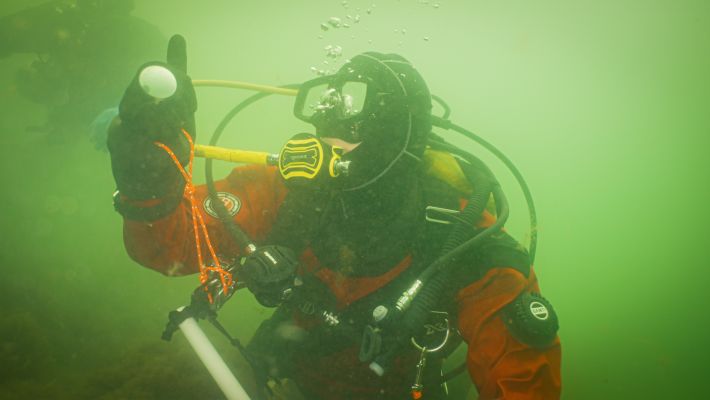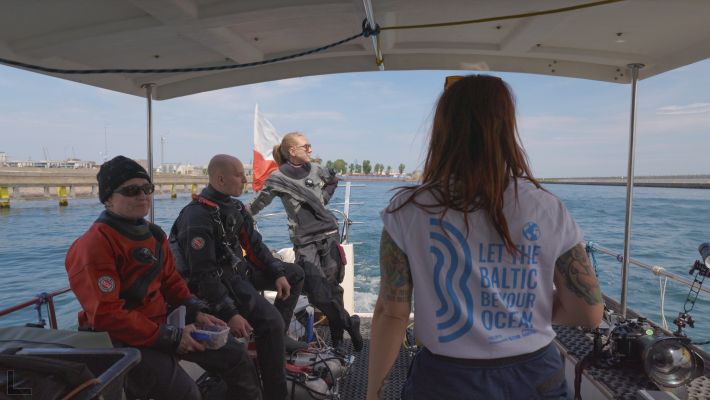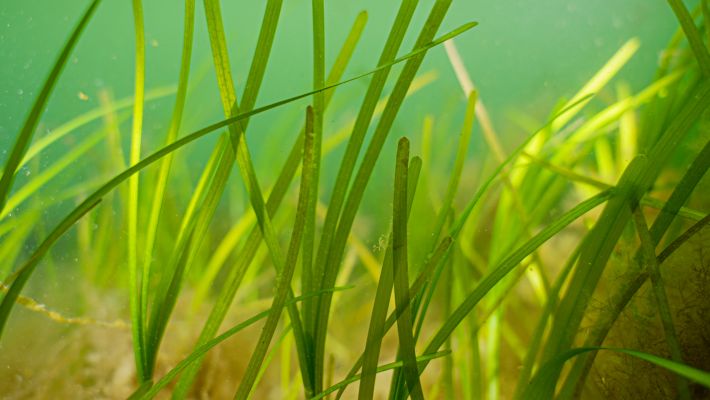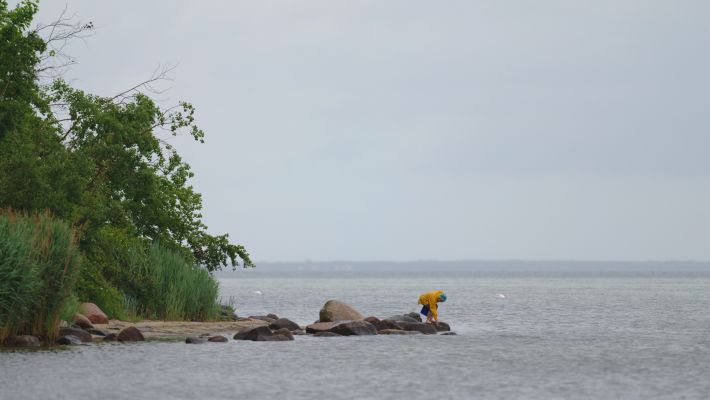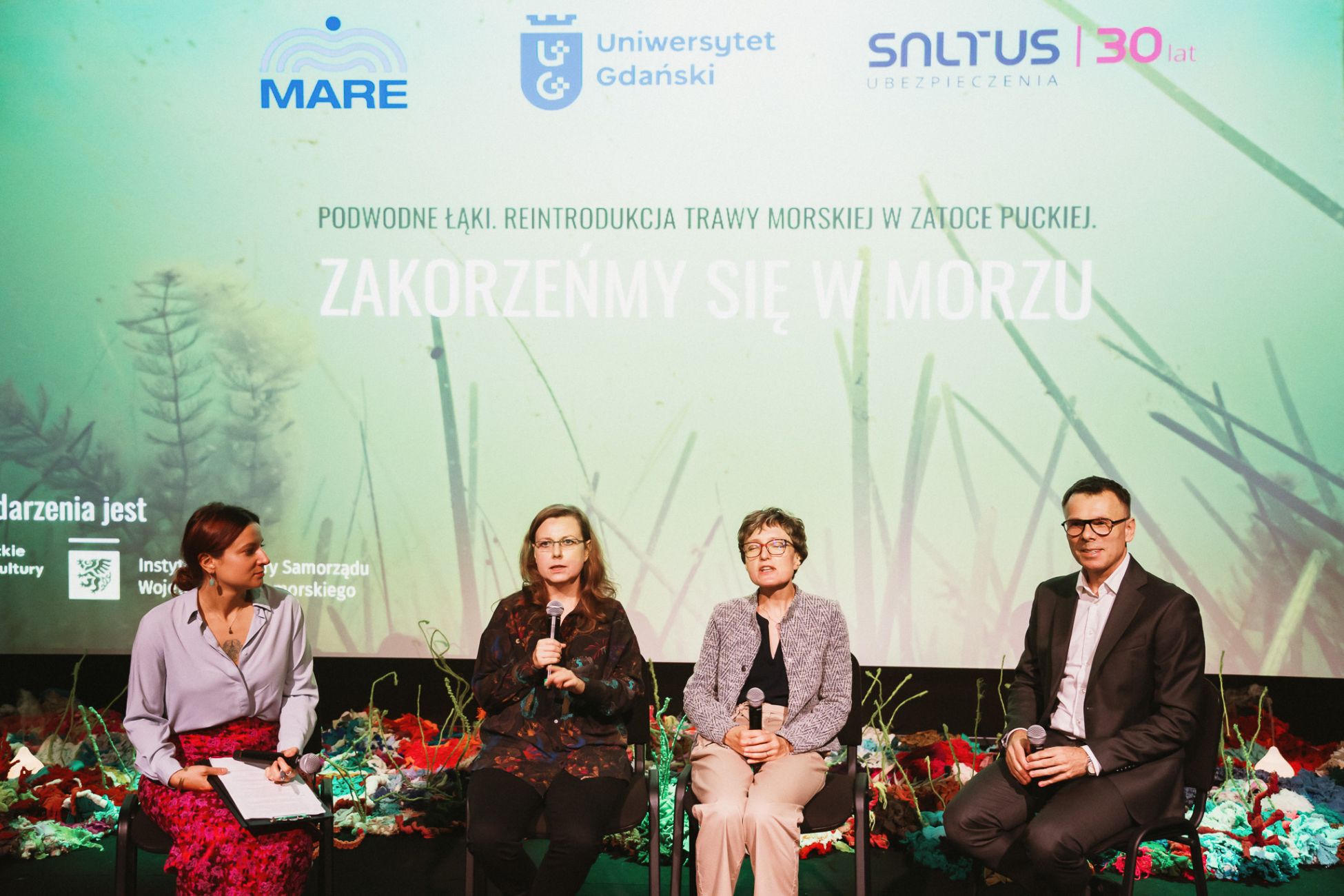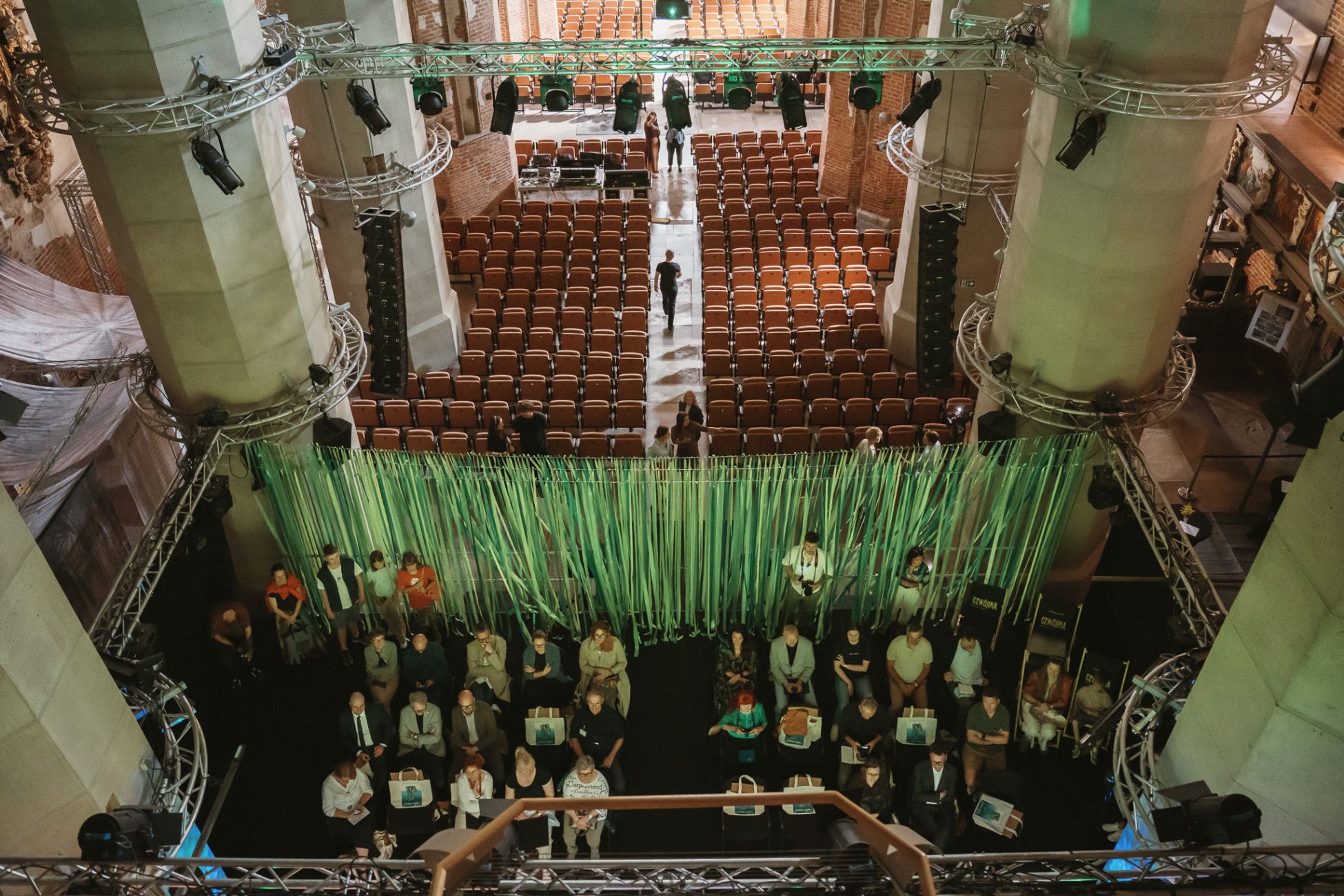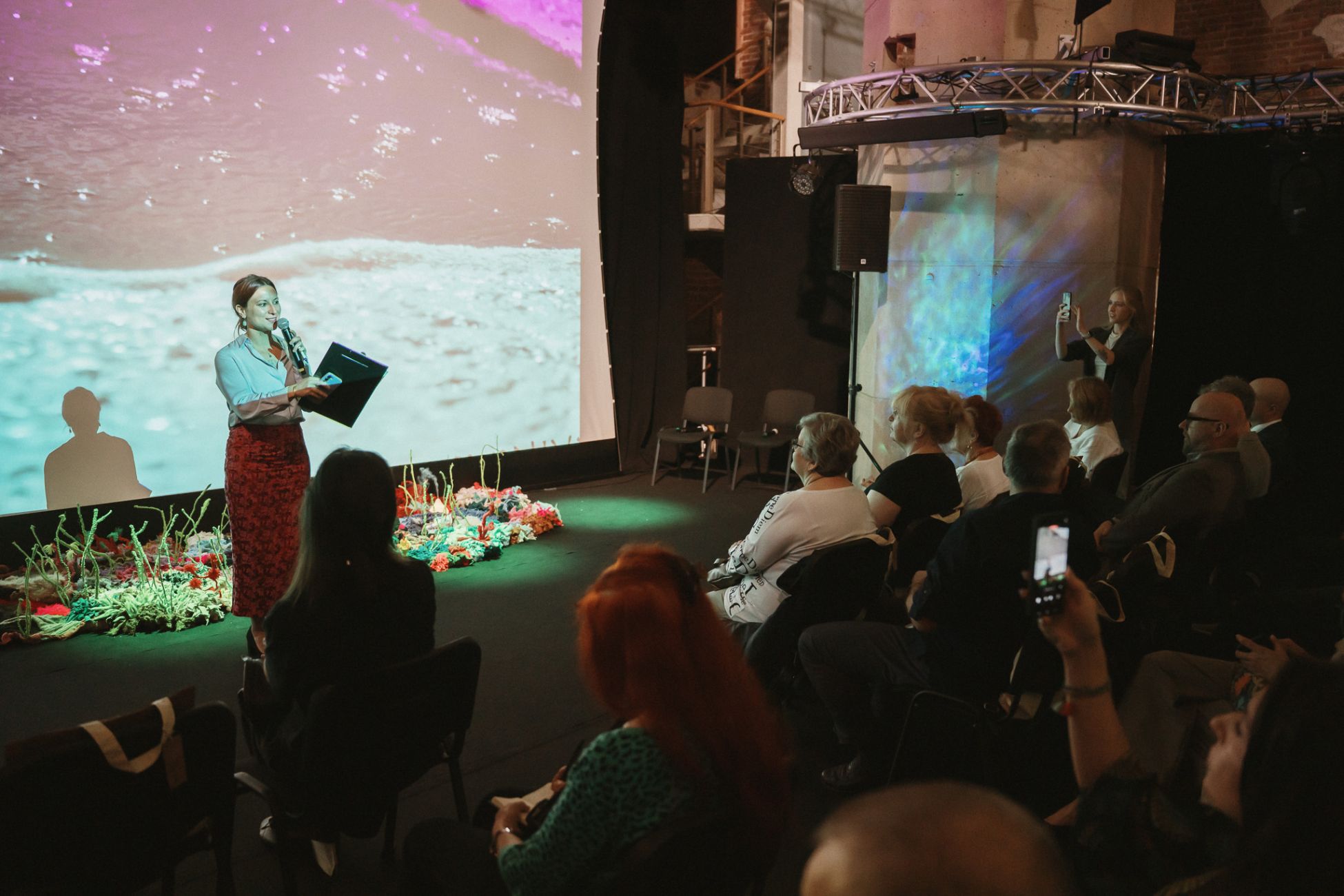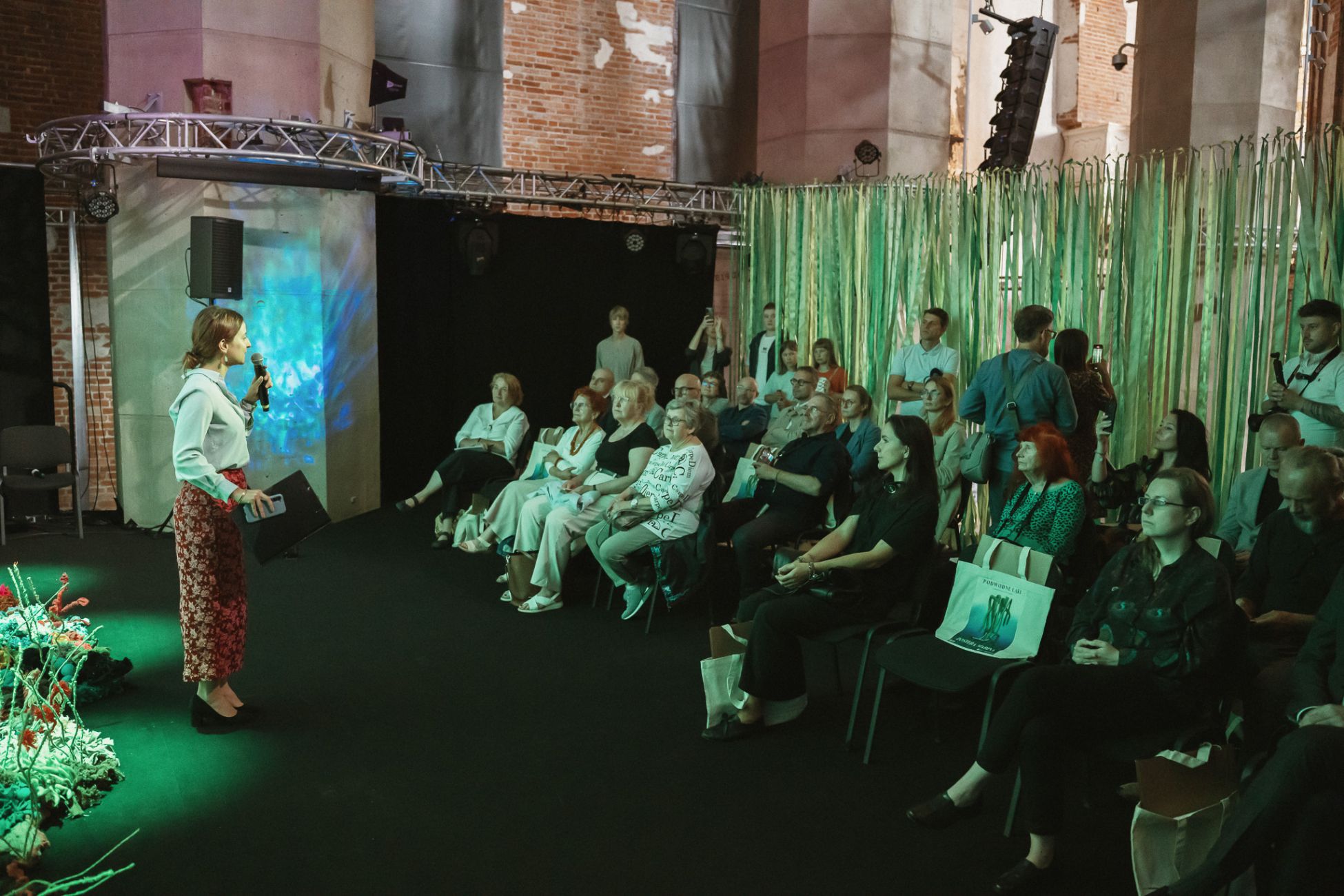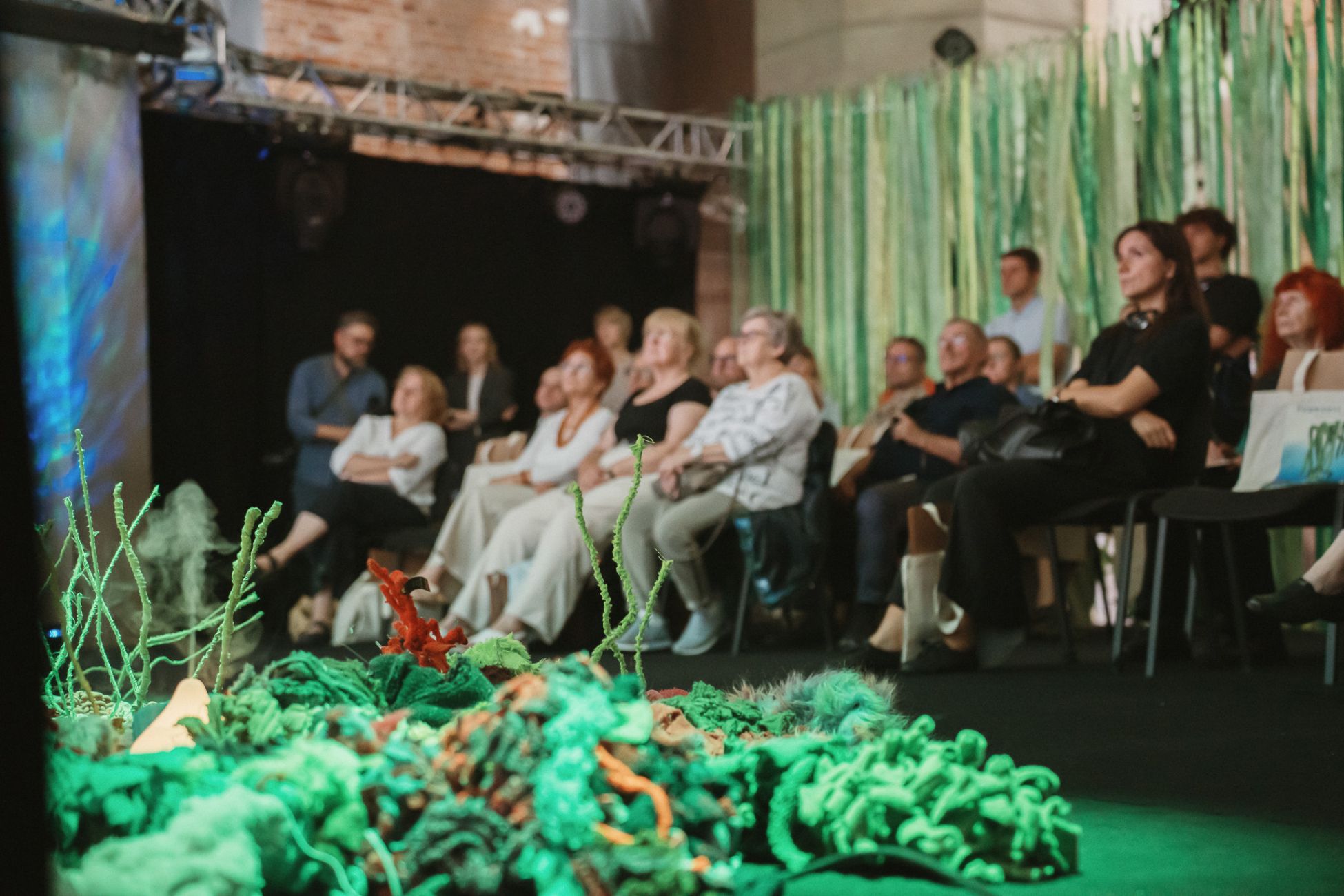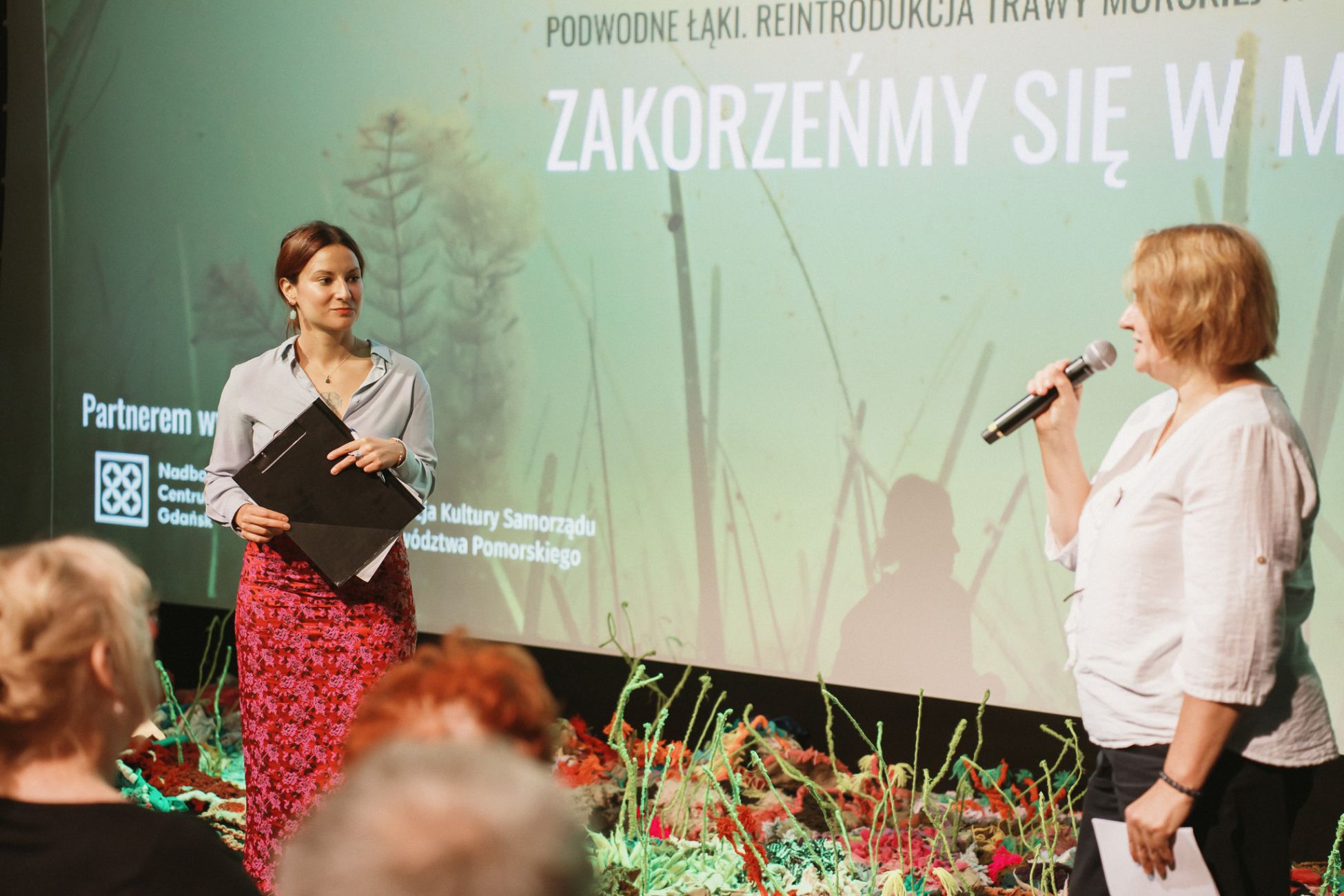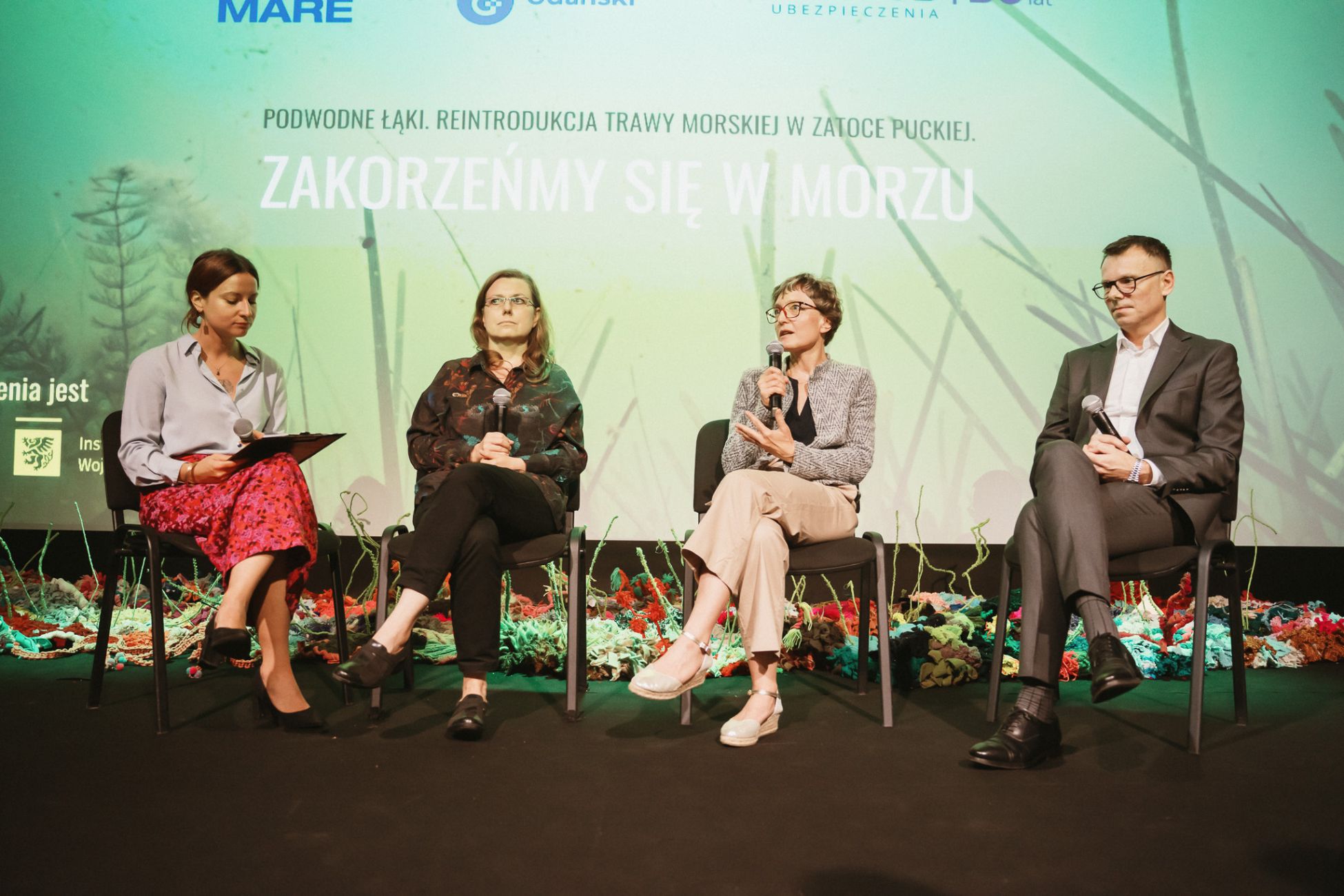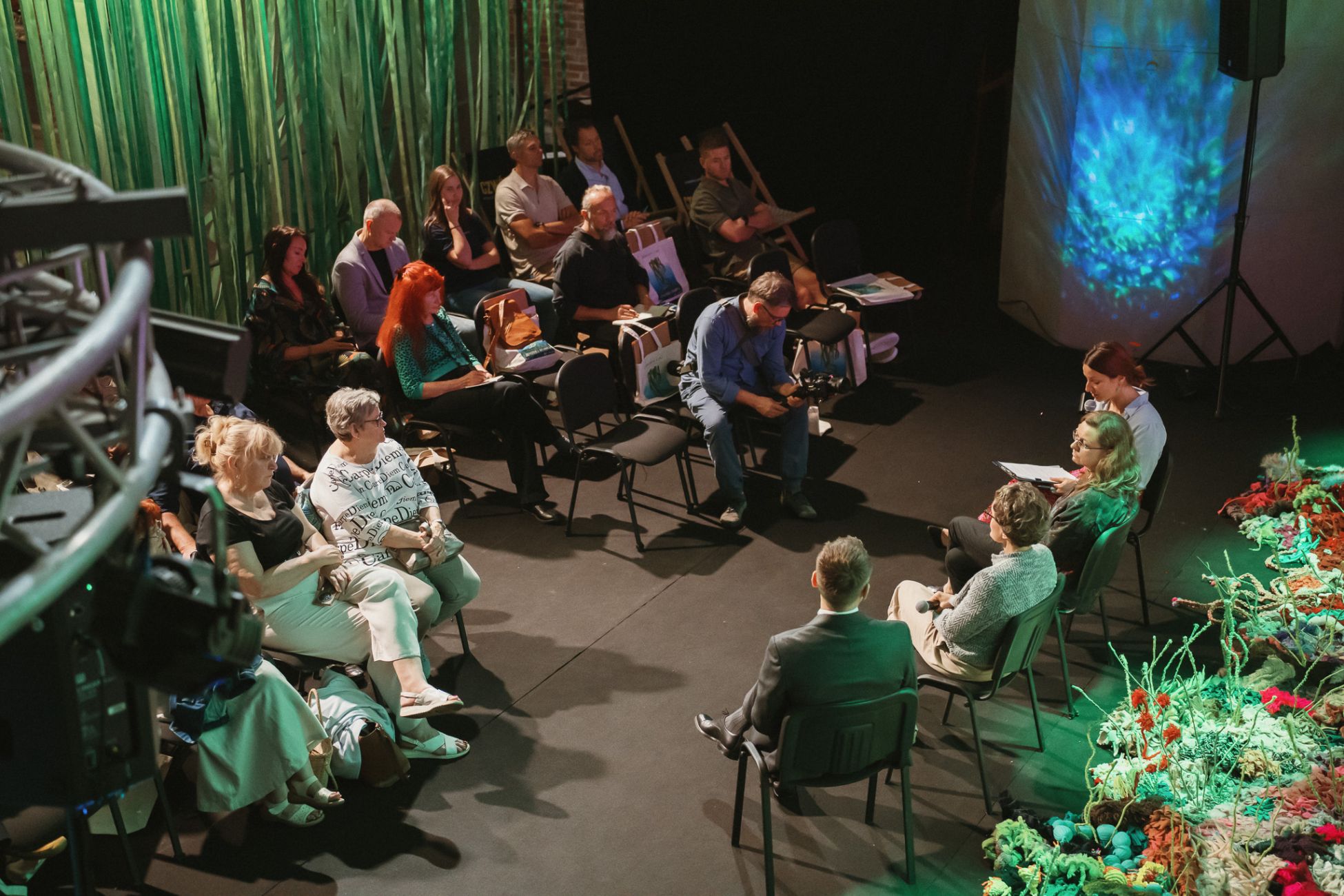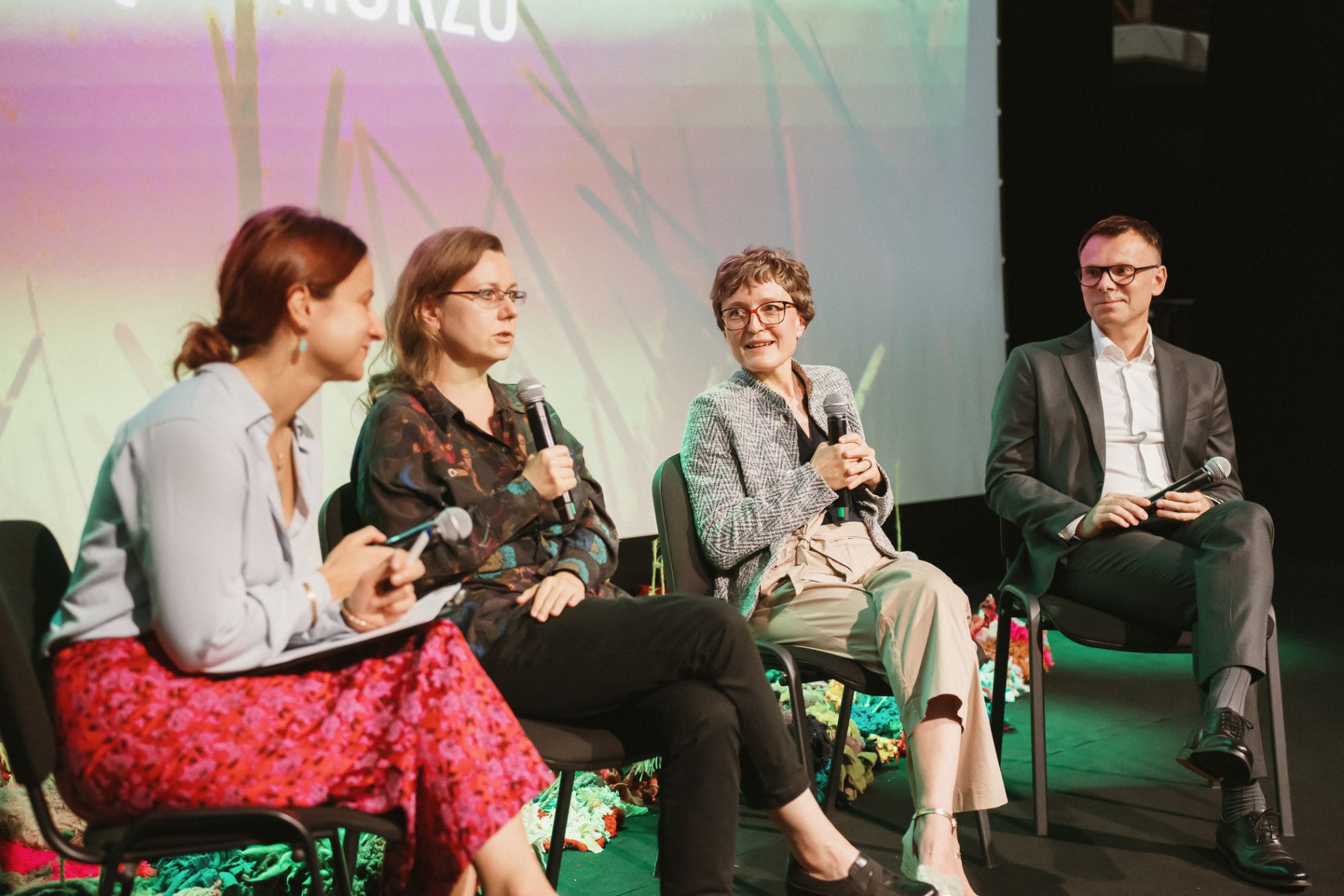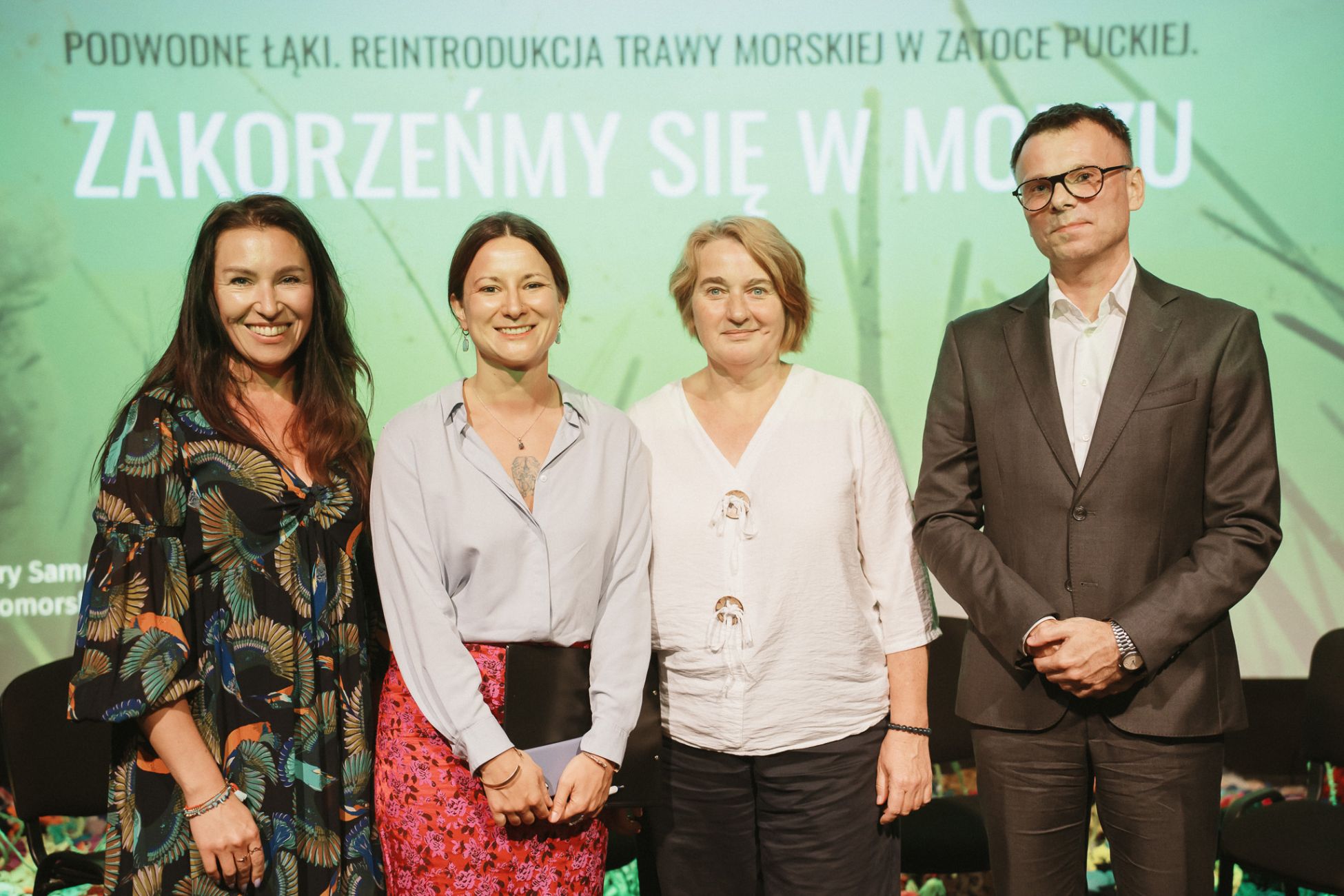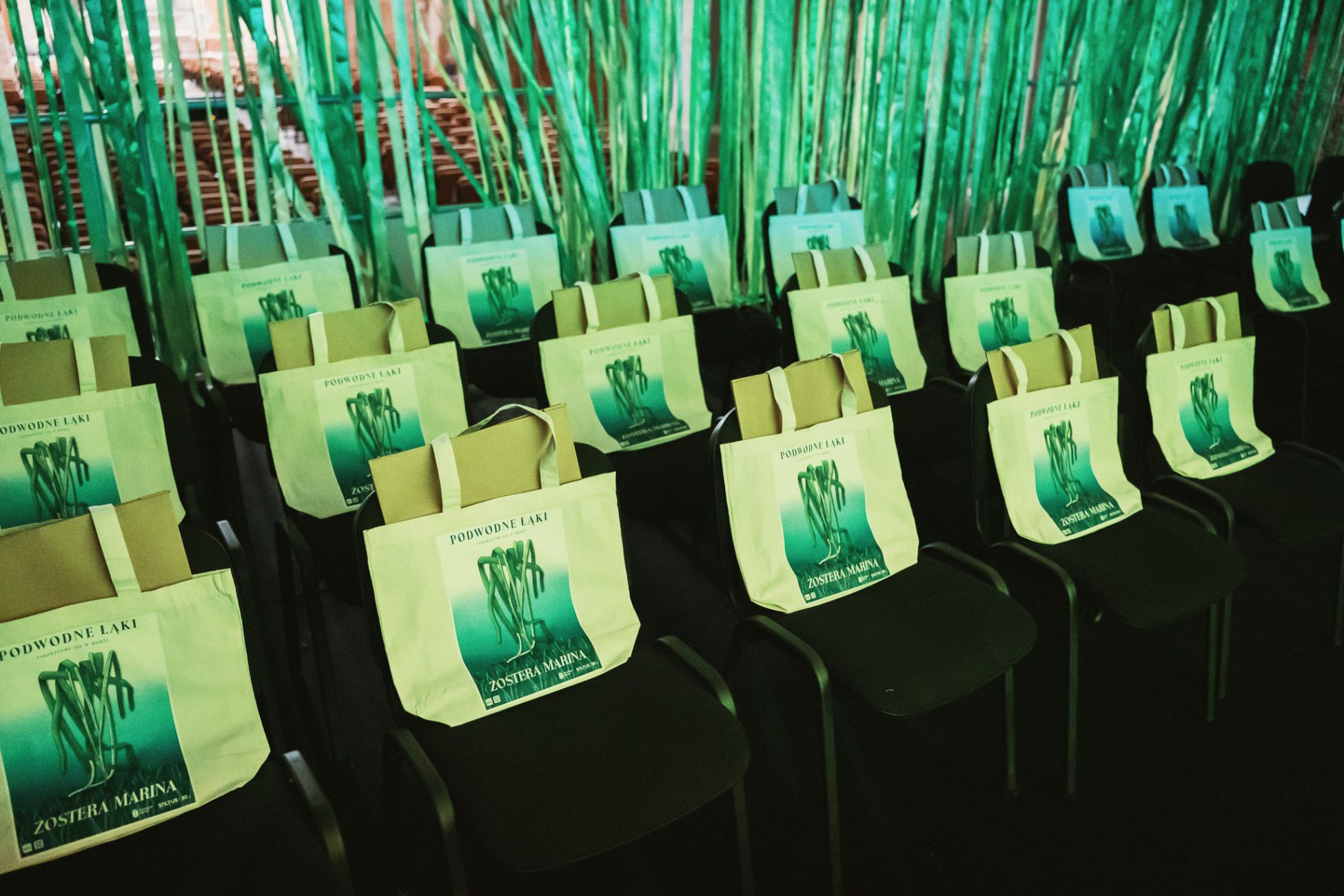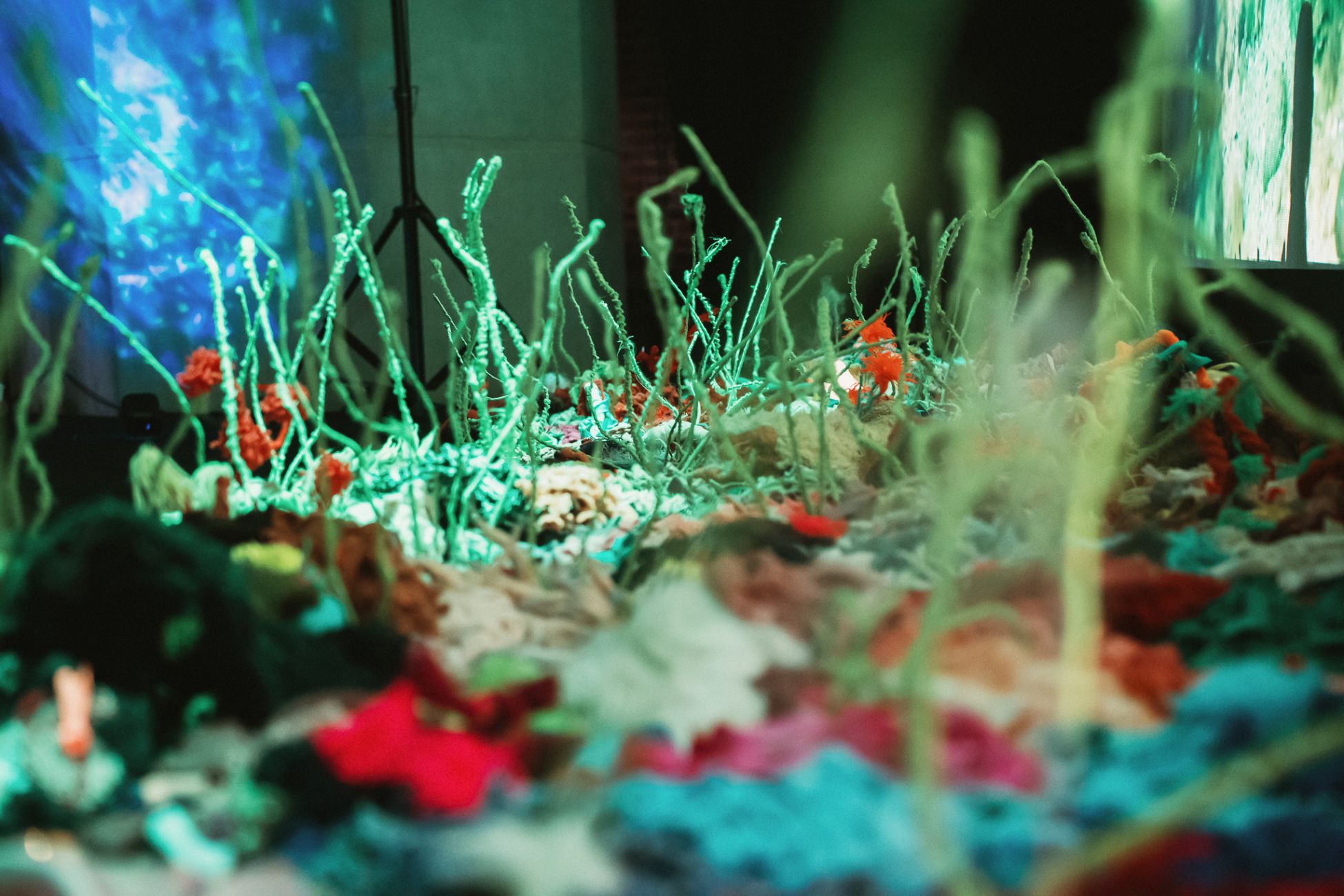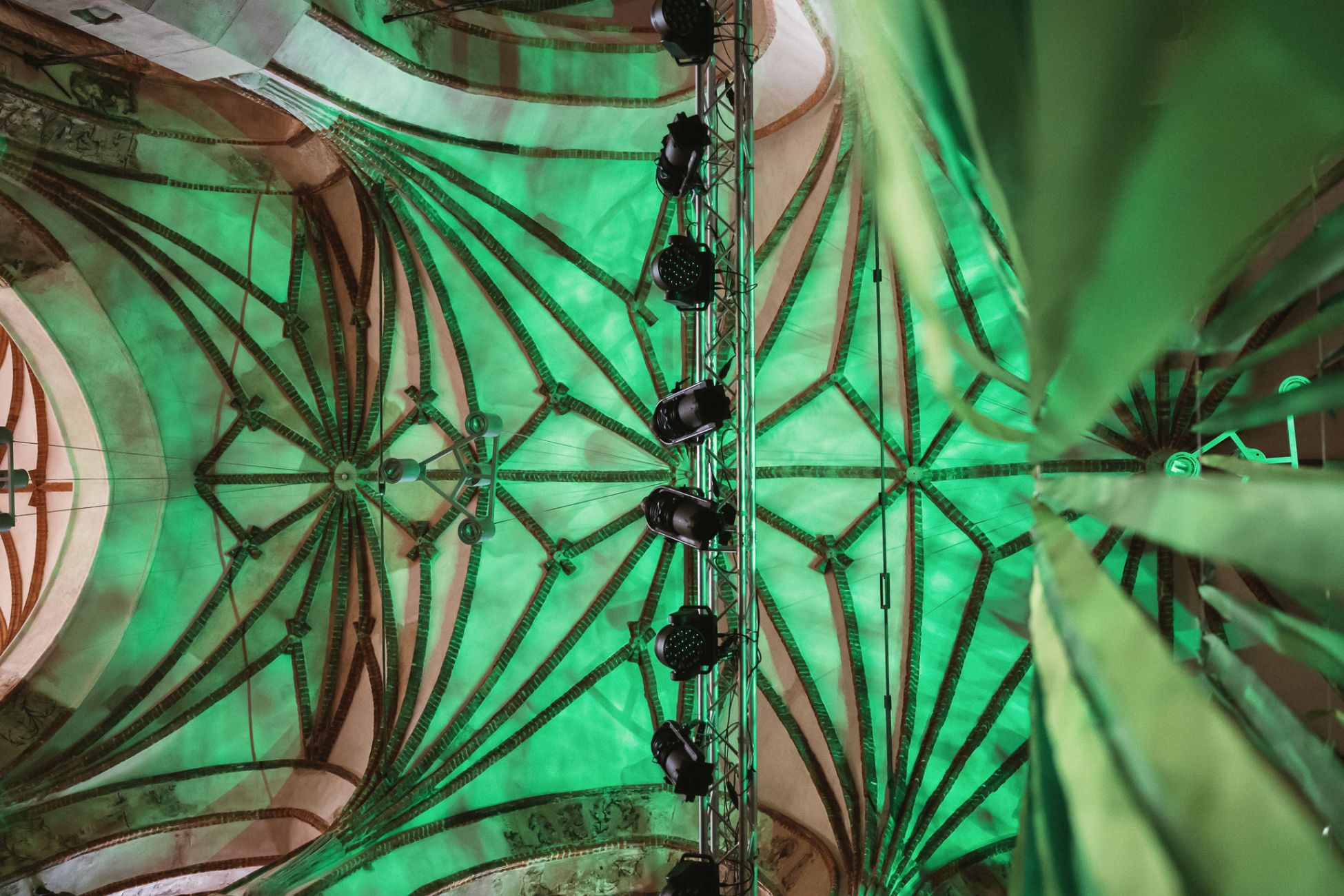Rooted in the Sea
Eelgrass Planting in Puck Bay.
Underwater meadows cover only 0.1% of the seabed of the world’s seas and oceans, and at the same time they are among the largest producers of oxygen. The list of important functions they perform is long, making them one of the most valuable and most productive marine ecosystems that must be protected. Fundacja MARE, the University of Gdańsk, and SALTUS Ubezpieczenia have joined forces to restore the vibrant underwater meadows in the Baltic Sea, in line with the concept of rewilding, which means returning ecosystems to their natural, wild state. A pilot project is currently being implemented, aiming to support the regeneration of native eelgrass (Zostera marina) meadows in areas of their former range in Puck Bay.
The eelgrass Zostera marina is an extremely valuable species for both the Baltic Sea and the planet. Research conducted on Zostera marina meadows along the German coast shows that one square meter of seagrass meadow can store an average of 10.7 kilograms of carbon (so-called blue carbon). This is an exceptionally important function in the context of combating climate change. In addition, seagrass reduces the amount of nitrogen and phosphorus compounds in the environment, thus limiting the process of eutrophication. It is also considered an ecosystem engineer - it stabilizes the seabed and reduces erosion. Furthermore, seagrass supports biodiversity by creating habitats that provide shelter and breeding grounds for many species of fish and invertebrates.
Photos from the project implementation. Photo: Krystian Bielatowicz; underwater photos: Patrycja Nowakowska
Just a few decades ago, the seabed of Puck Bay was covered with vast stretches of underwater meadows. However, since the 1960s, this fragile ecosystem has come under significant pressure due to the accumulation of various adverse factors, which have led to a reduction of areas covered by eelgrass in the region by as much as 80%.
“An increased inflow of nutrients containing large amounts of nitrogen and phosphorus has contributed to intensified eutrophication. This resulted in reduced water transparency, decreased light penetration into deeper water layers, and deteriorated oxygen conditions. The intensive development of coastal and tourist infrastructure within Puck Bay also had a negative impact on the meadows. In addition, seabed exploitation for the extraction of agar from marine algae, dredging for land reclamation, and anchoring of vessels led to the physical destruction of eelgrass areas,” - explains Dr. Ilona Złoch from the Faculty of Oceanography and Geography at the University of Gdańsk.
Such strong pressure on the Puck Bay area has led to changes in the structure of its ecosystem, including the disappearance of certain species of plants and algae, among them the eelgrass Zostera marina. The loss of a significant portion of underwater meadows has also had consequences for other marine organisms associated with this habitat - for example, fish species for which the meadows served as breeding grounds.
“Fortunately, as shown by my research conducted since 2018, underwater meadows are recovering. We are observing an increase in their range and the return of species that were once recorded there. Now is the best time to support their regeneration, as environmental conditions are improving. As part of the current pilot project, we have carried out plantings of eelgrass (Zostera marina) in the Puck Bay area. Thanks to the chosen methodology, it will be possible to assess which transplantation strategy offers the greatest chance of success,” - says Dr. Aleksandra Zgrundo from the Faculty of Oceanography and Geography at the University of Gdańsk.
“A very important objective of this project is that it is based on our native plants, which have the greatest potential to survive in the conditions of Puck Bay,” adds Dr. Ilona Złoch.
The project’s objectives are in line with the concept of rewilding – a progressive approach to nature conservation based on working in harmony with nature and restoring natural processes and habitats within ecosystems. Rewilding is not so much about “fixing” nature according to a human plan, but rather about creating the conditions in which seas, rivers, and forests can once again function on their own. In practice, this means actions such as restoring underwater meadows or establishing protected areas where wildlife can thrive without human pressure.
ZPhotos from the project implementation. Photos: Krystian Bielatowicz; underwater photo: Patrycja Nowakowska
“Fundacja MARE considers rewilding as more than just conservation – it is a philosophy of action. We do not seek to ‘manage’ nature, but rather to create conditions in which nature can regain its wild strength on its own. It is an invitation to coexist with the sea, which is not a foreign space, but a shared home and the foundation of our survival. The project is also accompanied by educational activities aimed at introducing the public to the plant inhabitants of the Baltic Sea – we believe that to want to protect something, one must first get to know and love it. I hope that by better understanding the organisms that live in the Baltic Sea, we as a society will become more willing to adopt behaviors and solutions that are friendly to the sea - in every field of life,” - says Olga Sarna, President of Fundacja MARE.
The pilot project is being carried out in cooperation with SALTUS Ubezpieczenia.
“Helping and caring for our surroundings are part of SALTUS Ubezpieczenia DNA. As an insurance company from Sopot, deeply rooted on the Baltic coast, we are proud to support the restoration of underwater meadows, which are the heart of the marine ecosystem and the foundation for future generations,” - says Mariusz Czajka, Vice President of the Management Board of SALTUS IUbezpieczenia.
On September 8, in the unique interiors of the St. John’s Centre in Gdańsk, a media event was held to inaugurate the project “Underwater meadows. Reintroduction of eelgrass in Puck Bay.” The meeting also marked the official beginning of long-term cooperation between Fundacja MARE and the Baltic Sea Cultural Centre in Gdańsk.
Photo report from the premiere screening of the film “Underwater meadows of the Baltic Sea” at the St. John’s Centre.
Photo: Piotr Szafran
“Our missions are aligned – Fundacja MARE protects the Baltic Sea in a physical sense, while we, the Baltic Sea Cultural Centre in Gdańsk, have been caring for its identity and cultural heritage for 33 years. It is time to bring these two worlds together. We know that our everyday choices affect the sea’s resources and the life that thrives within it. Culture is a field with a unique power to influence. For years (and since 2024 as a member of the Green Institutions Network of the Tricity and Pomerania), we have been regularly reminding people of the importance of the Baltic Sea and the need to protect its unique ecosystem. We believe that through the language of art and cultural and educational projects, we can spark imagination and inspire real change. Through this cooperation, we want to emphasize even more strongly that caring for the sea means caring for ourselves – for our lives, our heritage, and our future,” says Marta Korga-Bistram, Press Officer of the Baltic Sea Cultural Centre in Gdańsk.
During the event, a premiere screening of the documentary film by Krystian Bielatowicz, depicting the implementation of the pilot eelgrass planting project, took place. The event also featured a presentation of the immersive art installation “Into the Depths of the Baltic”, created by Fundacja MARE in collaboration with Polish artists Linda Lemon, Krystian Bielatowicz, and Krzysztof Topolski. The installation had its international premiere at the Polish Pavilion during Expo 2025 in Osaka, and its display at the St. John’s Centre marked its Polish premiere.
Press release


